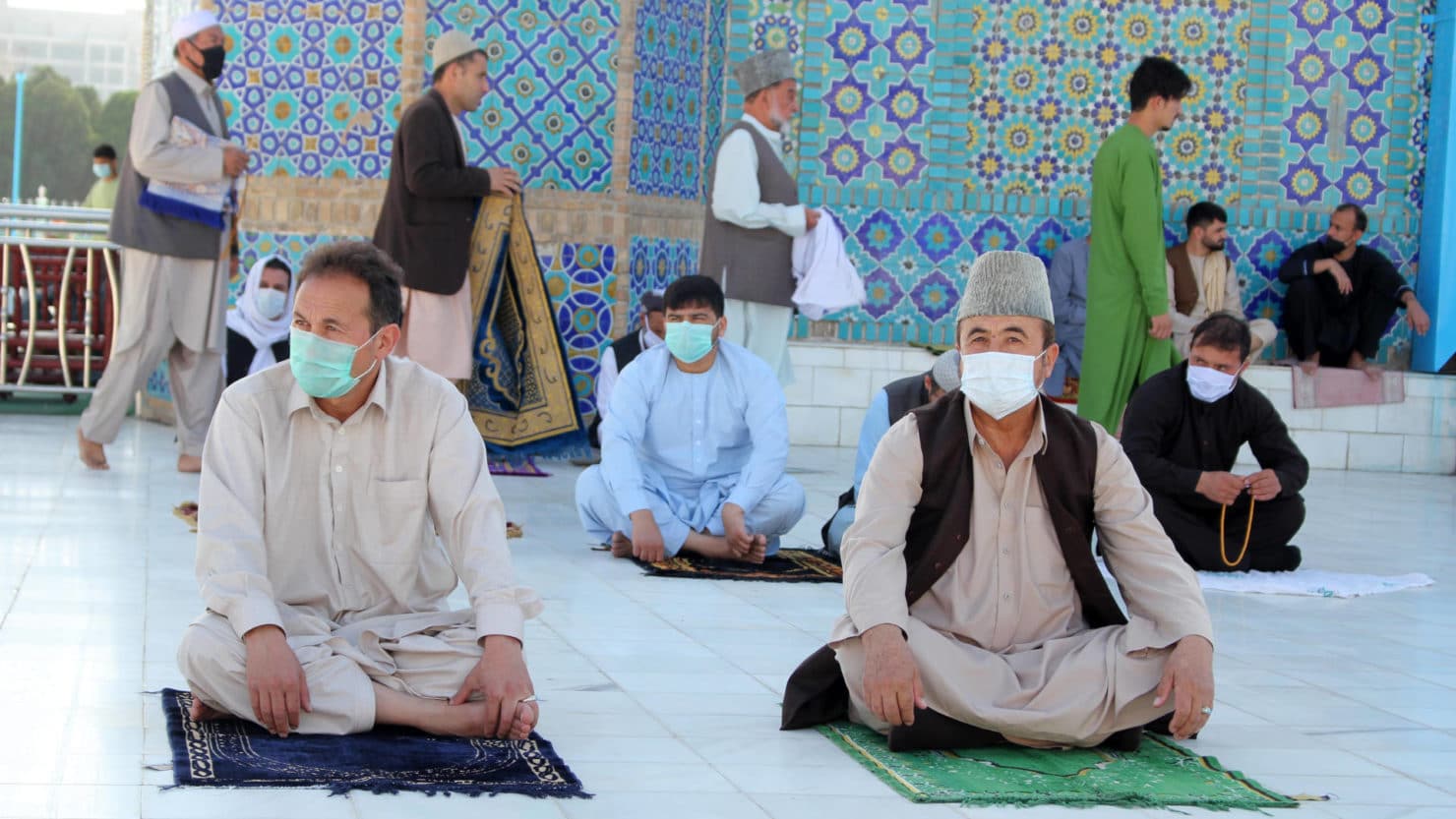LAM GUL ALAM’S symptoms had been steadily worsening for weeks when he decided to visit an herbalist named Haji Mohammad Alkozai. The 30-year-old civil servant from Kabul had intently watched a video clip making the rounds on Afghan social media, in which Alkozai claims to have discovered a cure for Covid-19 and describes dramatic recoveries of previously ill patients. Whatever this man was offering, Alam knew he wanted to try it.
“I feared for my life,” said Alam, who was diagnosed with Covid-19 in May. For weeks, he had struggled with severe chest and throat pain, along with shortness of breath. Doctors had prescribed medications, but nothing seemed to work. Alam was desperate.
An image of Haji Mohammad Alkozai, taken from a YouTube channel that appears to be run by the herbalist.
On the evening of May 29, he traveled by car to Alkozai’s clinic in the northern part of the Afghan capital. Upon arrival, Alam joined a line of hundreds of patients that stretched down the road. Once inside, he had an additional wait in an overcrowded basement. After nearly four hours, he finally received three drops of the herbalist’s purported miracle concoction.
By the time of Alam’s visit, hundreds of Afghans were praising the wonders of Alkozai’s treatment, though the herbalist steadfastly refused to disclose the active ingredients. The clamor caught the attention of the Afghan Ministry of Public Health, which tested the compound and found that it contained several highly addictive ingredients, including opioids such as morphine and codeine. Afghanistan is the world’s leading grower of opium, used to produce heroin and other illegal drugs, much of which is traded globally. An estimated 2 million Afghans use opiates according to a 2015 survey.
During a press conference on June 9, Wahid Majrooh, deputy minister of public health, released the findings. He explained the substance’s addictive potential — and its lack of effectiveness as a remedy for Covid-19. Because narcotics are regulated under Afghan law, their distribution as an herbal remedy is considered criminal. The Ministry issued an order to shut down the Kabul clinic and then forwarded the findings to security agencies to take action.
In Afghanistan’s deeply conservative society, many viewed these moves to protect public health as an affront to Afghan culture and religious values. When government forces tried to shut down the clinic, some Afghans took to the streets. “Afghanistan is a very religious and cultural country and it is not uncommon here for traditional doctors to prescribe herbal medicines,” said Maryam Shamal Ghalib, a general surgeon at Wazir Akbar Khan Hospital in Kabul.
Read full story on Undark
